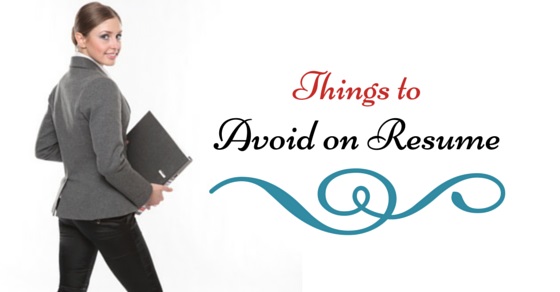Undoubtedly resume is the first prospect to make an impression on potential employers.
Accordingly, it has to be made correctly by avoiding some general resume errors. It’s misleadingly easy to craft mistakes on your resume but exceptionally difficult to mend it once before an employer gets your resume in hand.
So, this obstacle is dangerous, whether you are writing your resume or modifying it for a mid-career job hunt.
Check out with resume guide or resume making experts is must, to initially make the most common consequences and how you can avoid them while creating your resume. Here is what frequent errors you should evade making in the resume.
 Writing your Resume – What Common Mistakes To Avoid?
Writing your Resume – What Common Mistakes To Avoid?
1. Typos and grammatical mistakes:
Your resume needs perfect word accuracy which has to be grammatically faultless.
Employers will read it amid the lines and draw not so flattering conclusions about you. Probably the first thought that will come into their mind is the person doesn’t care much or he doesn’t know how to write the words or to make formation of sentences.
Grammatical mistakes are very common while typing, hence proof read your resume is must before finalizing.
2. Lack of particulars:
If there is no proper mentioning of your exact essentials in the resume then it could also mislead the employers and the proper communication could be deceived.
Employers just need to know what you have completed and accomplished in the past.
Accurate and precise information of your education, previous and/ or current experience should be mentioned. Each & every employer information needs to be written clearly in terms of years and duration.
3. Endeavoring one range fits all:
 Whenever you attempt to develop a one-size-fits-all resume to send to all equivalent employers, you roughly end up with something that employers will certainly chuck your resume in the reprocess basket.
Whenever you attempt to develop a one-size-fits-all resume to send to all equivalent employers, you roughly end up with something that employers will certainly chuck your resume in the reprocess basket.
Employers always prefer that you typically write a resume particularly for them and for the said position.
They anticipate you to unmistakably show, how and why you well-fit for the position in the organization. Hence, it is recommended to make single resume at a time for singly entity only.
4. Highlight duties instead of undertakings:
It is very simple to slide into a form where you can simply start listing accomplishments on your resume.
But it is necessarily important to list your duties and responsibilities which you might have held in earlier organizations.
It enables an employer to understand more of your job profile. Therefore, to make them recognize your resume in a better way, always list your duties instead of accomplishments.
5. Keep short paragraphs:
Even though employer may read or heed, but there are no actual rules prevailing in resume length. This doesn’t mean that you start sending out 4or 5 page resumes, of course.
Generally, you need to maximize yourself to a limit of two- three page resume.
On the contrary, do not cut the mainstream out of your resume, simply to make it be conventional to a subjective one-page standard.
6. An unpleasant aim:
 Employers first do read your resume objective, but very often they work through formless sentences likewise, “hunting for a challenging position that offers skilled and special growth” etc. It gives employers a repulsive and bad feel about your goals and aims in life.
Employers first do read your resume objective, but very often they work through formless sentences likewise, “hunting for a challenging position that offers skilled and special growth” etc. It gives employers a repulsive and bad feel about your goals and aims in life.
The objective on the top of your resume should be specifically mentioned and, more considerably, something that focuses on employer’s needs as well as on your own.
7. Parting off vital information:
You may be persuading, to eradicate mentioning of the jobs you have been doing to earn extra money for any reason.
However, the soft skills you have achieved from these part-time experiences should be mentioned on resume which reflects your willingness to work and the hard work you did in the past. These are more imperative points for employers .
8. Keep same visual fonts and text:
If you keep your resumes looks like a wall-to-wall text marking five different fonts and different texts, most likely it will give the employer a severe pain.
Generally, try to show your resume to a resume making expert or some other professionals before sending it out to the employer. Resume has to be visually attractive in any case.
9. Incorrect contact information:
Always make sure that you are putting the right and correct credentials on the resume.
Likewise correct spellings of your name or father’s name, home address, contact information, previous organization’s address and contact numbers etc.
Never put wrong information since it may lead you in trouble as well. Ascertain even the mainly minute, taken-for-granted details before it gets too late.
10. Never list inappropriate work experience:
 If you are applying for a company related to accounts position or designer position never put your experience as a ski instructor from 10 years ago from now. This counts as an inappropriate work skill. It sheds a serious bad impression on the employer.
If you are applying for a company related to accounts position or designer position never put your experience as a ski instructor from 10 years ago from now. This counts as an inappropriate work skill. It sheds a serious bad impression on the employer.
Always list your current position held in the same field, for which you are currently applying.
11. A “to whom it may concern” addressing:
Job seekers usually send across the resumes without addressing proper department name. This should be rigorously customized on resumes for each job before you apply.
When you stumble on a job you are excited to pertain for, take a few minutes of time to vigilantly read and edit your resume before you further send it across.
12. An unprofessional email address:
Employers first look for email address and at the same time for contact details to start corresponding with candidates.
Email addresses with words other than your name in them or that includes numbers, shows a diverse lack of professionalism, and doesn’t appeal much to the employers. Hence, your email address should be made absolutely in a professional way.
13. Use high-lightening points:
Don’t tell your employers everything about each job in a resume only. Try to focus on the highlights; keep your document to two- three pages in cases external of academic and/ or research backgrounds.
Keep few things to tell during interview so that it can enhance chances of extra communication.
Whether you are an entry-level young professional, mid-level career changer, or executive job-seeker, you need to follow the same strategy.
14. Use format skills:
 To make your resume look better and professionally sound, you need to take extra care while crafting it. Use better modified formatting techniques to make it look professional.
To make your resume look better and professionally sound, you need to take extra care while crafting it. Use better modified formatting techniques to make it look professional.
Similarly you should use bullets, numbering and short paragraphs in the resume which could increase employer’s readability and they can better focus on your resume.
15. Use simple words and designs:
Well, if you really want that your profile should have scheduled in the shortlist listing of candidates, then better to make your resume more visible, readable and professionally echo.
Always try to use simple and logical words to make its understanding clear. Never use tough synonyms of words in the resume which severely effect on your selection.
Avoid using not required designing and formatting, after all you are not going for a painting competition.
Communication:
Employers always prefer to get hold on all the above discovered points in sequence. If there is lack of proper mentioning of professional or personal information and/ or wrong citation of particulars, then it could express your profile in an immoral way.
Use best of your experience to be revealed and cited in resume, this is how employer could make out first judgment about your persona in a positive direction. Misleading or broken information can also create a bad impression.
Consequently, use self judgment; take suggestions from experts and follow guidelines to eradicate even small blunders out of the resume.







































